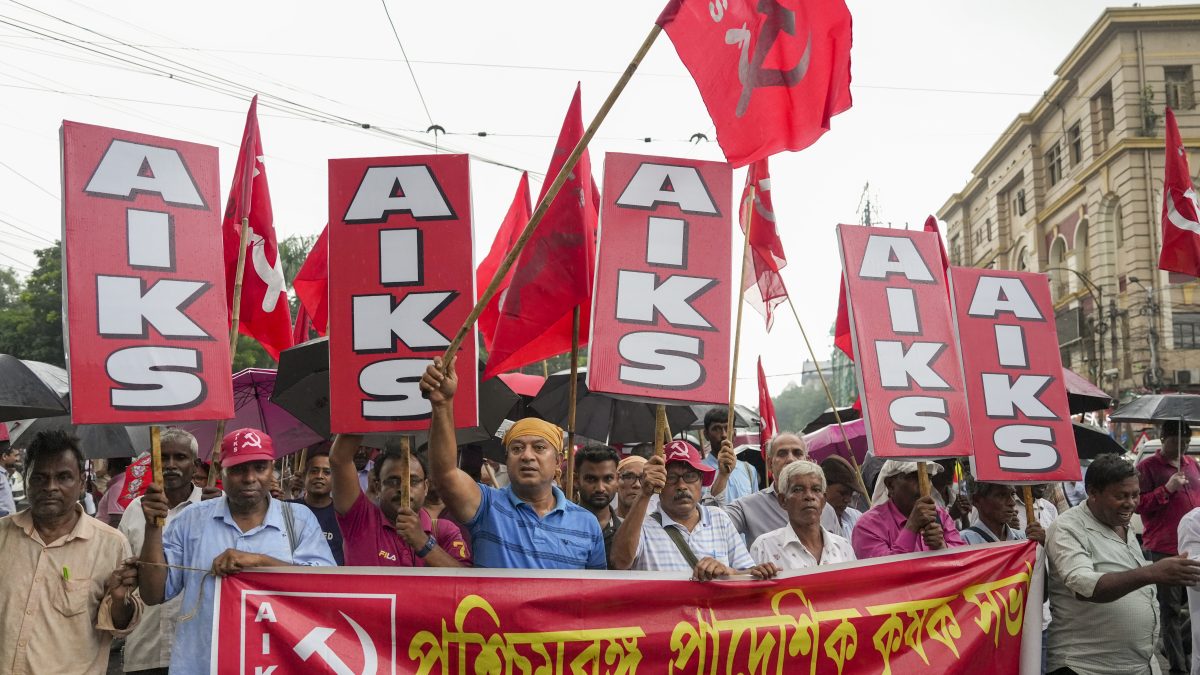More than 25 crore workers are expected to go on nationwide strike dubbed ‘ Bharat Bandh ’ in India today, July 9, in protest of central government policies that are perceived as “anti-worker, anti-farmer, and pro-corporate.”
This nationwide strike, which is being organised by a joint forum of 10 central trade unions and farmers’ and rural labour organisations like the Samyukta Kisan Morcha, is expected to cause disruptions in a number of industries.
The strike is aimed at raising concerns over economic policies, labour reforms, and employment issues.
While the government has yet to respond formally, the protest is expected to impact services across the country.
Here are the 10 things to know about the Bharat Bandh:
1. Over 25 crore workers expected to participate
The strike involves a diverse group of workers from banking, insurance, postal services, coal mining, steel, transportation, and government sectors. Farmers and rural labourers will also join in protests around the country.
2. Sectors that may see disruptions
Union leaders believe the walkout will disrupt banking, postal services, coal mining, public transportation, and manufacturing activities in many states.
3. Farmers and rural labourers provide help
The Samyukta Kisan Morcha and rural labour groups are supporting the strike, with protests planned in both urban and rural areas.
Impact Shorts
More Shorts4. Months of mobilisation and planning
The joint trade union forum has made great efforts to guarantee mass involvement by both official and informal sector workers.
5. 17-point demand charter submitted
The trade unions had given a detailed list of demands to Labour Minister Mansukh Mandaviya, which includes job creation, recruiting for vacant positions, and urban employment guarantees. They also condemned the government’s decade-long refusal to hold yearly labour conferences, as well as its purported policies that harm workers’ interests.
6. Demands on employment and MGNREGA
“We are demanding from the government to address unemployment, recruitments against sanctioned posts, creation of more jobs, increase in days and remuneration of MGNREGA workers and enactment of similar legislation for urban areas. But the government is busy imposing ELI (Employment Linked Incentive) scheme to incentives employers’ instead," the forum stated.
7. Opposition to new labour codes
Unions have expressed worries about the four new labour rules enacted by Parliament, stating they limit workers’ rights to collective bargaining, allow for longer work hours, and undermine safeguards.
8. Public sector recruiting procedures are questioned
Leaders opposed the hiring of retired professionals over new recruits in vital industries like as railways, NMDC Ltd, steel, and education.
9. Continued opposition to privatisation
The unions continue to resist the privatisation of public-sector firms, contract-based hiring, and outsourcing, which they argue have an influence on job security.
10. High youth unemployment is a major issue
The strike occurs at a time when 65 per cent of India’s population is under 35, with unemployment particularly prevalent among those aged 20 to 25.
The unions representing agricultural workers and the Samyukta Kisan Morcha have promised their support and intend to organise participation in rural regions.
Similar national strikes have been called by trade unions on February 16 of last year, November 26, 2020, and March 28–29, 2022.


)

)
)
)
)
)
)
)
)



